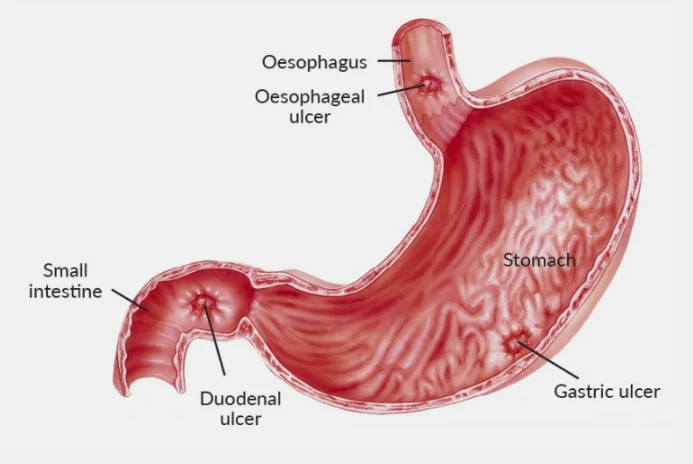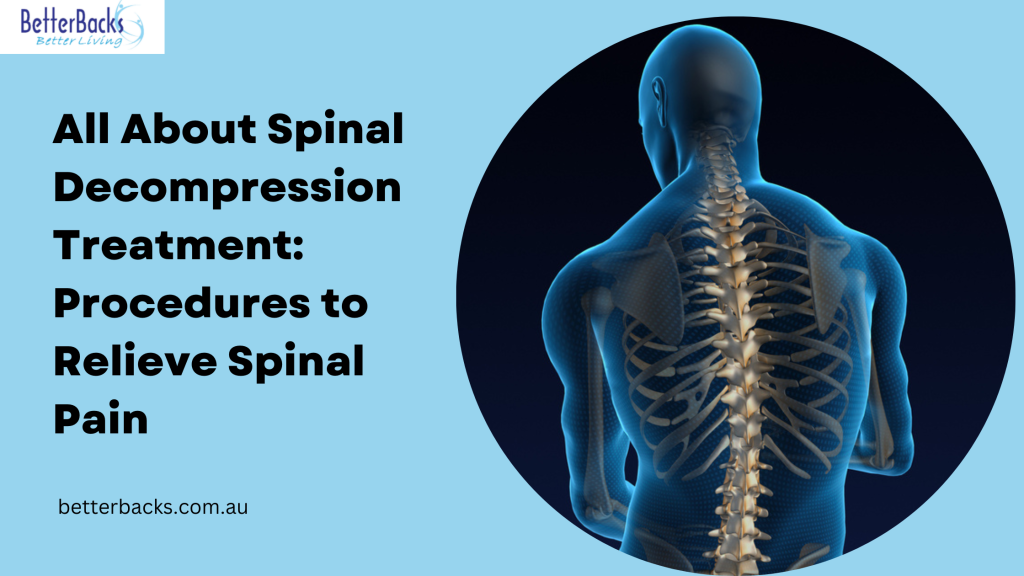A stomach ulcer, also known as a gastric or peptic ulcer, is a painful sore that forms on the lining of the stomach or the first part of the small intestine, known as the duodenum. These ulcers can result from various causes and can lead to discomfort and complications if left untreated. In this article, we’ll explore the causes, symptoms, and treatment options for stomach ulcers.
Causes of Stomach Ulcers:
- Helicobacter pylori (H. pylori) Infection: This bacterium is a common cause of stomach ulcers. It weakens the protective mucous layer in the stomach and duodenum, allowing stomach acid to damage the lining.
- Nonsteroidal Anti-Inflammatory Drugs (NSAIDs): Frequent use of NSAIDs, such as aspirin, ibuprofen, and naproxen, can irritate the stomach lining and increase the risk of ulcers.
- Excessive Stomach Acid Production: Some individuals produce excess stomach acid, which can lead to the development of ulcers, especially in the absence of sufficient protective mechanisms. Refer to a Best Gastroenterologist in Lahoreto know more.
- Smoking: Smoking increases the risk of stomach ulcers and can slow down the healing process.
- Alcohol Consumption: Excessive alcohol consumption can irritate and erode the stomach lining, making it more susceptible to ulcers.
- Stress: While stress itself may not directly cause ulcers, it can exacerbate existing ulcers and delay the healing process.
- Zollinger-Ellison Syndrome: This rare condition causes the stomach to produce excessive amounts of acid, increasing the risk of ulcers.
Symptoms of Stomach Ulcers:
- Burning Pain: A common symptom is a burning or gnawing pain in the upper abdomen, typically occurring between meals or during the night.
- Nausea and Vomiting: Ulcers can lead to feelings of nausea and, in some cases, vomiting.
- Indigestion: Frequent indigestion, bloating, and a feeling of fullness may be experienced.
- Loss of Appetite: Some individuals with stomach ulcers may lose their appetite and experience unintended weight loss.
- Dark or Bloody Stools: Bleeding ulcers can result in black, tarry stools (melena) or stools that appear bright red due to fresh blood.
- Fatigue: Anemia can develop if the ulcer causes significant bleeding, leading to fatigue and weakness.
Treatment of Stomach Ulcers:
- Medications: The primary treatment for stomach ulcers involves medications to reduce stomach acid and promote healing. Common medications include:
- Proton Pump Inhibitors (PPIs): These drugs, such as omeprazole and lansoprazole, reduce acid production in the stomach.
- H2 Blockers: Medications like ranitidine and famotidine also reduce stomach acid production.
- Antibiotics: If an H. pylori infection is present, a course of antibiotics is prescribed to eradicate the bacterium.
- Cytoprotective Agents: Sucralfate may be used to protect the ulcer and help it heal.
Lifestyle Modifications:
- Avoid NSAIDs: If possible, avoid or limit the use of nonsteroidal anti-inflammatory drugs.
- Quit Smoking: Smoking can delay ulcer healing, so quitting is essential.
- Limit Alcohol: Reducing alcohol consumption can help prevent further irritation of the stomach lining.
- Manage Stress: Stress reduction techniques, such as meditation and relaxation exercises, may be helpful.
- Avoid Spicy and Acidic Foods: These can irritate the stomach lining.
- Eat Small, Frequent Meals: This can help reduce stomach acid production and prevent discomfort.
- Monitoring and Follow-Up: Regular check-ups with a healthcare provider are crucial to monitor ulcer healing and adjust treatment as needed.
It’s important to note that most stomach ulcers can be successfully treated, and complications can be prevented with prompt medical attention. If you suspect you have a stomach ulcer or are experiencing persistent abdominal pain or other symptoms, consult a Gastroenterologist in Karachi for a proper diagnosis and treatment plan tailored to your specific condition. Early intervention can help prevent complications and promote faster healing.
Author



